PREAMBLE.
The story of the Charismatic movement in Ghana will be incomplete without the mention of Full Gospel Church International (FGCI). Its founder and first President, the Very Rev. Emmanuel Ashong Mensah, by virtue of sheer perseverance, immense sacrifices and the love for GOD, provided the birth grounds for the charismatic movement in Ghana.
It is arguably clear and without any shred of doubt that the credit for moving the charismatic trend from the periphery to the centre of Christianity in Ghana, goes ultimately to the Very Rev. Emmanuel. A. Mensah and the Full Gospel Church International he founded.
THE LIFE OF EMMANUEL A. MENSAH
Childhood and Education
Emmanuel Ashong Mensah was born at Osu in Accra, Ghana on 7th May 1928 to the late Nortey Quaye Mensah, a farmer from Boi and Rebecca Abla, a trader who migrated from Tsito in the Volta Region to Boi through Abokobi.
He was the last of seven children his parents had. He started working at the tender age of ten due to the fact that he came from a very poor background. He resolved to educate himself from the funds he generated through basket weaving; and hence enrolled in Class One at the Osu Presbyterian Primary School in the year 1945, at the age of seventeen.
He later continued to the Presbyterian Middle Boarding School at Abokobi and completed in 1952. Because of his value for knowledge, Ashong Mensah undertook a two-year correspondence course in Marketing and Management from 1952-1953 with the Rapid Results College of London, UK.
Family
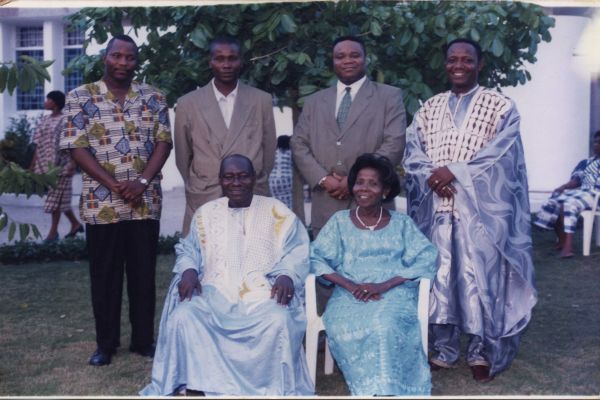
Ashong Mensah met and married his first wife, Catherina Mensah at the Presbyterian Church of Ghana at Abossey Okai, Accra in 1955.
They were blessed with six children; Samuel Noi Mensah, Enoch Narku Mensah (deceased), Edmund Adumuah Mensah, Daniel Narh Mensah, Patience Naa Shorme Mensah and Ebenezer Narteh Mensah.
After the demise of his wife Catherina Mensah in 1998, Ashong Mensah got Madam Sarah Kai Mensah in 2005, with whom he shared his life until he was also called unto glory in 2009.
Born Again Experience
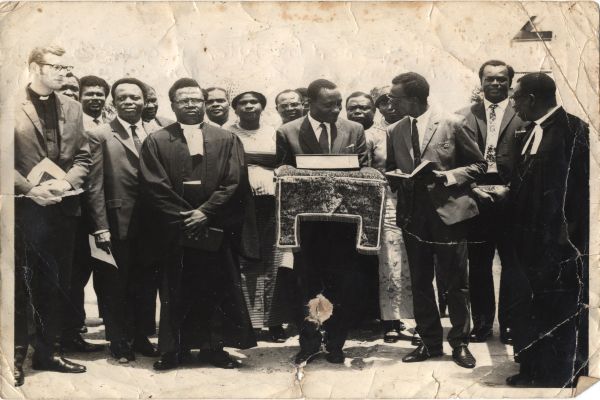
E. A. Mensah surrendered his life totally to the Lord Jesus Christ at a T. L Osborne crusade held at the old Polo grounds in 1954. Through the discipleship of his elder brother, Robert Danso Mensah, he became committed to God and the Presbyterian Church of Ghana (Presby Church) in Abossey Okai at Accra.
He was baptized by the late Rt. Rev. Charles Owuo of the Presby Church at Abossey Okai where he later served as a presbyter and a lay preacher. When he migrated to Tema, he continued to serve as a presbyter in the Presby Church of the Greenwich Meridian Congregation. He was active and instrumental in the evangelistic and church planting activities of the church within Tema and its environs.
To broaden his knowledge in ministry, he enrolled at the Presbyterian Training Center at Abetifi-Kwahu in 1964 for a course in Evangelism – which was his major area of ministry. This course was a major influence on the life and ministry of Ashong Mensah’.
THE WORKS (MINISTRY)
The admonition of Rev. Kumi to his students during the training course at Abetifi-Kwahu to start prayer groups so as to fill the spiritual vacuum in the church inspired Ashong Mensah to start a prayer group in the Presby Church, Meridian congregation in Tema.
This group became part of the life of the church as it served as the prayer and evangelistic wing, at a time when Rev. Swaniker was in charge of the Tema Area.
The purpose for the formation of this group is affirmed by Torto Laryea that “it was established to deal with the lethargic spirituality in the church and the many challenges confronting people at that time”
Torto Laryea, interview by author, Tema, 12th December, 2012. Torto Laryea was the immediate assistant of Ashong Mensah after the PGEA was started.
Ashong Mensah’s leadership in the Prayer Group
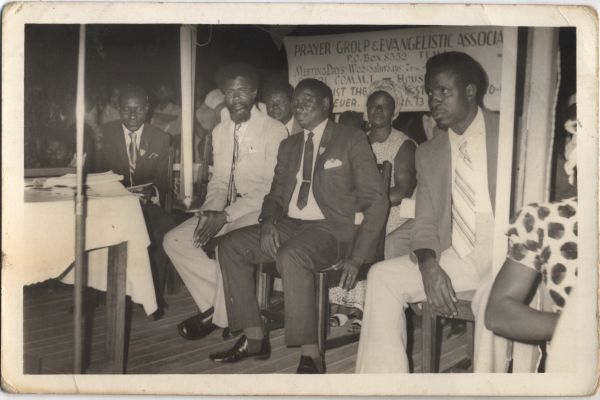 Ashong Mensah’s leadership sparked the fire of the Holy Spirit in the prayer group because he had received the baptism of the Holy Spirit, with the evidence of speaking in tongues and the manifestation of some spiritual gifts. With the gifts of healing, working of miracles and speaking in tongues, he became a ‘conductor’ in the group through whom the power of God was emitted.
Ashong Mensah’s leadership sparked the fire of the Holy Spirit in the prayer group because he had received the baptism of the Holy Spirit, with the evidence of speaking in tongues and the manifestation of some spiritual gifts. With the gifts of healing, working of miracles and speaking in tongues, he became a ‘conductor’ in the group through whom the power of God was emitted.
People from both the Presby Church and Methodist church among others began consulting him for answers to their spiritual and daily predicaments.
His copious and intense prayer, especially praying in tongues and the undeniable healings and miracles following him, became the main source of attraction in the prayer group.
The Presby Church took an antagonistic stand against him because in those days, baptism in the Holy Spirit with the evidence of speaking in tongues and loud prayers as a religious practice was not part of their tradition; and the church would not like to entertain any persons claiming to have some power, whose practices conflicted with the Presby Church.
Secession from the Presby Church
Sensing danger from the authorities of the Church to suppress him and the spiritual gifts working in him, Ashong Mensah together with his wife Catherina Mensah began another prayer group in their living room at Site 21, Tema in 1963.
They were joined by their two children at the time, Samuel Noi Mensah and Edmund Mensah, and also Adelaide Budu Dawson together with other staunch members of his prayer group from the Women’s Fellowship of the Presby Church. In the prayer meetings, clapping of hands, dancing, and praying in tongues were allowed during worship times.
This experience was carried over by members of the prayer group into the Presbyterian Church of Ghana in Tema, the Greenwich Meridian congregation.
Opposition from the authorities of Presby Church
Ashong Mensah was accused of turning Presby Church in Tema into a ‘Sunsum Sore’ (Spiritual church). He was asked to stop the prayer meetings in his house and limit himself to the work of a presbyter in the church. This move was orchestrated by the leadership of the Presby Church because many of the members of the church would not attend church service, but would find themselves in ‘Brother Mensah’s’ prayer meetings.
The prayer meetings which took place at his residence in site 21, Tema, and the spiritual experiences of people who came there were identified with the place. It became a revival ground for all who wanted an experience with the Spirit of God by way of intensifying their prayer life and building spirituality.
It was a place that served as a ‘spiritual hospital’ where all kinds of spiritual and physical ailments were brought to for answers. It was known as ‘Site 21 Revival’. It was at this time young Christians flocked to “Site 21’ to learn how to pray and to catch that fire of the revival.
Some of the young men who were impacted by the ministry of Ashong Mensah are Bishop Dr. Gordon Kisseih, (the founder and leader of Life International Church), Pastor Mensa Otabil, (the General Overseer of the International Central Gospel Church), and Dr. Kingsley Fletcher – Chancellor of Nana Opoku Ampomah University of Professional Studies, Accra (previously known as University of Professional Studies, Accra) among others.
Birth of Full Gospel Evangelistic Ministry (FGEM)
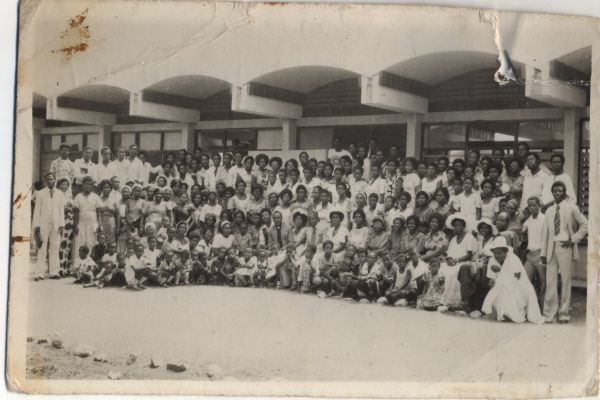
Very Rev. E. A. Mensah was called as an Evangelist (Ephesians 4: 11) and as a result, the Prayer Group and Evangelistic Association (PGEA) known as the ‘Site 21 Revival’, gave way to the Full Gospel Evangelistic Ministry (FGEM) after he was kicked out of the Presby Church of the Greenwich Meridian.
Ashong Mensah was officially ordained into pastoral ministry on 2nd February, 1978 by Rev Stanley King of Apostolic Church of Pentecost (ACOP) with his team of ministers like Gill Killam and Mitchell all of Canada, and Rev. Moses Afful of the Apostolic Reformed Church, Ghana. On this same day, the PGEA was inaugurated as a church bearing the name, Full Gospel Evangelistic Ministry (FGEM) and Ashong Mensah became the first pastor and president
The FGEM was inaugurated primarily as a vehicle to propagate the basic message of salvation and hope to the destitute with its guiding principle being,” Evangelism, Our Supreme Task”.
The church’s revival spread and attracted many faithfuls across the country, leading to the establishment of several branch networks nationwide.
IMPACT OF E. A MENSAH AT GPC (now GPCC)
On Ashong Mensah’s role and impact in the GPC (Now GPCC- Ghana Pentecostal and Charismatic Council) Rev. E. A. Ayisi shared on his frankness and objectivity during Council meetings. Apostle Saforo in a recorded interview had this to share on the impact of Ashong Mensah on the GPC.
“Anytime we meet, his contributions, his advice is always based on the word of God, and you could see that he was somebody who is in touch with the Lord”.
Leadership Legacy
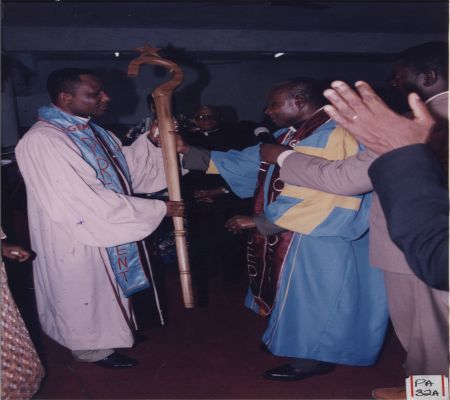
In 1986, Ashong Mensah began to discuss pastoral leadership succession with his son. He recognized the call of God on his son and his leadership skill and therefore took great care in developing those abilities. In developing the leadership skill of his son, he also gave him exposure.
Ashong Mensah attended high quality leadership seminars with him as Noi Mensah sat to observe how such meetings were conducted. Ashong Mensah retired from active ministry after thirty eight years of hard work of prayer, soul winning, and planting of churches in Ghana, After an election by the General Council of the church, he handed over the presidency on 23rd January, 2000 to his successor, Samuel Noi Mensah, as second generation leader of the FGCI.
This great feat of leadership is attested to by Duncan-Williams that ‘Ashong Mensah was the first and only known independent Charismatic church leader in Ghana who successfully raised his own son and handed over the mantle of leadership to him whiles alive.’
From what we have outlined above, the Very Rev. Ashong Mensah thought more of the next generation and not merely of his position in the organization. In the view of Munroe (2011), the highest manifestation of true leadership is to identify one’s replacement and begin mentoring him or her. (p.10).
Ashong Mensah’s perspective of ministry is supported by an assertion by Munroe (2011) that it is not the achievements of leaders that counts but rather what they transfer.
Pioneering the Charismatic Movement in Ghana
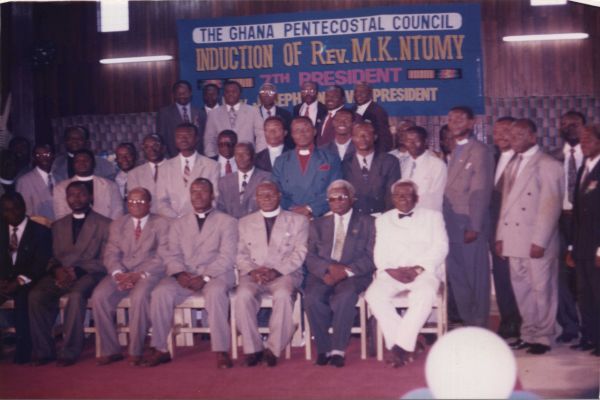
A study conducted by Oboh (2013) unfolded that FGCI is one of the oldest charismatic churches which helped in the pioneering work of the charismatic movement in Ghana. The study also indicated that even though, the charismatic movement historically began in 1978, Duncan-Williams’ pioneering work in 1979 defines its present nature in Ghana.
The necessity of proper and effective mentorship is revealed in the study, so is the impact of Ashong Mensah on Duncan-Williams, Noi Mensah and others. According to Duncan-Williams himself, he was spiritually trained by Ashong Mensah at the initial stages of his Christian life.
Lack of proper mentorship in today’s charismatic churches is breeding all kinds of religious indiscipline and producing many self-acclaimed ‘men of God’ who claim to belong to the charismatic religious orientation.
Such persons pollute the air waves through radio and television with problematic doctrines and messages.
